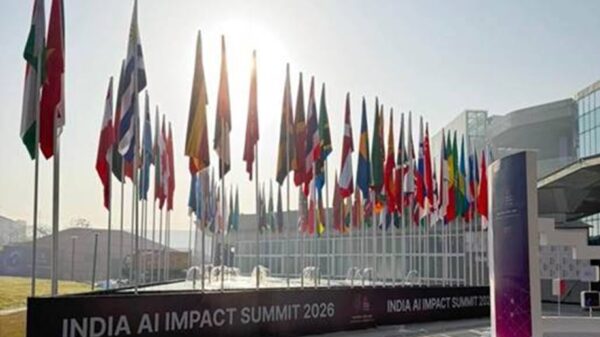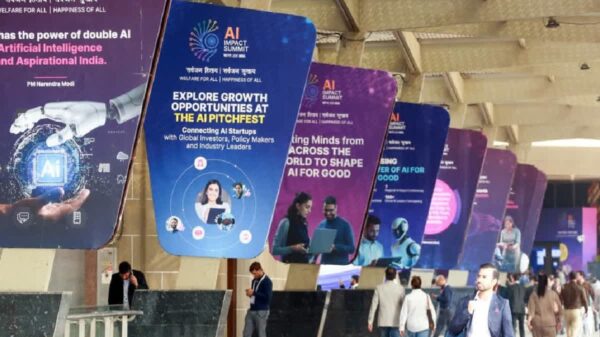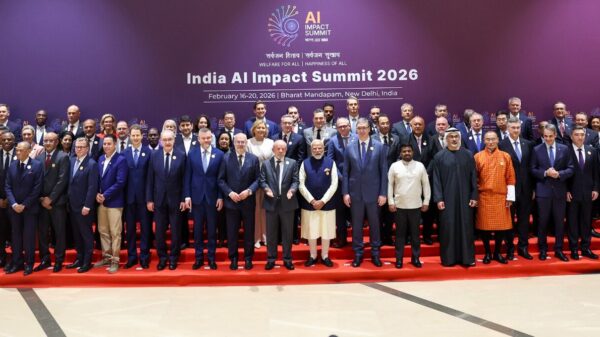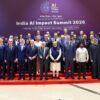India’s Ministry of Electronics and Information Technology has recently unveiled a set of governance guidelines for artificial intelligence, marking a pivotal moment in the nation’s approach to regulating this transformative technology. This 66-page document builds upon an initial draft released in January and signals the government’s intention to establish a regulatory framework that emphasizes self-regulation within the industry.
During the announcement, Ministry Secretary S. Krishnan stated that the guidelines reflect a “conscious and deliberate approach of not leading with regulation.” Instead, the Indian government is opting for a largely hands-off strategy regarding AI governance. This release comes at a critical time, as the guidelines are expected to inform discussions during the upcoming India AI Impact Summit in New Delhi, scheduled for late February, where global leaders in AI will gather to exchange insights.
Integrating AI with Digital Public Infrastructure
The primary focus of these guidelines revolves around Prime Minister Narendra Modi’s holistic approach to governance. They aim to establish clear communication channels among various government bodies, enhance bureaucratic capacity, and ensure responsible AI usage within the public sector. Although the guidelines lack specific regulatory measures, they do outline the Indian government’s overall vision for AI policymaking, which is centered on the concept of Digital Public Infrastructure (DPI).
This vision aligns AI development with existing digital infrastructure, such as Aadhaar—India’s national digital identity system—UPI (Unified Payments Interface), and DigiLocker, a personal online document repository used for authentication purposes. The guidelines also highlight India’s digital language repository, Bhasini, and regulatory initiatives like DEPA (Data Empowerment and Protection Architecture), which promotes permission-based data sharing. This integration could play a crucial role in addressing the global privacy-innovation trade-off that has become a focal point in AI policymaking.
Accountability Challenges in AI Regulation
While the Indian guidelines acknowledge the potential risks associated with AI, they notably fall short in addressing accountability and liability concerns. The document suggests that these risks can largely be managed under existing laws, attributing the primary challenge to inconsistent enforcement. However, it stops short of providing concrete solutions or recommendations regarding enforcement mechanisms. The guidelines propose a graded penalty system but caution against accountability frameworks that might hinder innovation.
Interestingly, the guidelines specifically call for the establishment of an AI Governance Group (AIGG) to oversee the implementation of best practices, particularly in regulating deepfakes. This group is expected to explore tools for watermarking and labeling AI-generated content, allowing for traceability back to the underlying data sources or large language models (LLMs) involved in its creation. This denotes a notable shift, as the guidelines selectively address the politically sensitive issue of deepfakes while largely avoiding regulation of more contentious applications like facial recognition in public services.
Despite the Indian government’s aim for a self-regulatory framework, the effectiveness of such an approach remains uncertain. The guidelines, while providing a foundational framework, do not offer substantial insights into how industry codes of conduct or model regulations may evolve in practice. As the world anticipates the outcomes of the upcoming AI Summit, it is clear that India’s path forward will require careful balancing of innovation with ethical and regulatory concerns.
See also Consilium and Hyundai Test AI Cameras for Maritime Fire Detection on Container Vessels
Consilium and Hyundai Test AI Cameras for Maritime Fire Detection on Container Vessels AI Leaders Discuss Transformative Impact on Workforce at Utah Roundtable
AI Leaders Discuss Transformative Impact on Workforce at Utah Roundtable Oklahoma Appoints Tai Phan as First Chief AI Officer to Drive Government Tech Transformation
Oklahoma Appoints Tai Phan as First Chief AI Officer to Drive Government Tech Transformation Ubisoft Reveals Teammates: AI-Driven NPCs Enhance Gameplay with Real-Time Interaction
Ubisoft Reveals Teammates: AI-Driven NPCs Enhance Gameplay with Real-Time Interaction Bentonville Schools Integrate AI into Career Prep, Engaging 1,000 Students Annually
Bentonville Schools Integrate AI into Career Prep, Engaging 1,000 Students Annually




































































